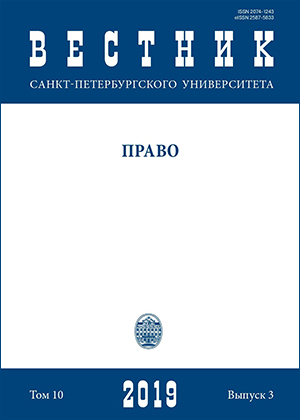Models of convicts’ labor organization in European German-speaking federative countries: comparative legal research
DOI:
https://doi.org/10.21638/spbu14.2019.309Аннотация
This article presents the results of comparative legal research of convict labor organization models in European German-speaking federative countries. The researched group of countries included the Austrian Republic, the Federative Republic of Germany and the Switzerland Confederation. As a base for the comparative research, penal law regulations in the sphere of convict labor organization in the Russian Federation were taken. This choice is explained by the federative form of government in the Russian Federation and the pronounced affiliation of the Russian legal system to the Romano-Germanic legal family that developed over a long period in the researched group of European countries. Sources of legal regulation of convict labor in the Austrian Republic, the Federative Republic of Germany, the Switzerland Confederation and the Russian Federation were determined and analyzed. Scientific research is grounded on the systematic combination of comparative legal and historical research methods. The information base of the study is formed by official statistical data of penitentiary departments of the researched countries, their valid penal legislation, and scientific works of Russian and foreign authors on the researched issue. Peculiarities of the researched countries’ penal systems were analyzed. Among such peculiarities we investigated: operators of prison systems, influence of the federative form of state on penal system organization, separate positions of penal legislation, etc. A wide range of aspects of convicts’ professional training was researched. Models of convict labor organization of the studied countries were observed, analyzed and compared. We defined the high level of legal regulation of the researched field of public relations in European German-speaking federative countries and in the Russian Federation as well.
Ключевые слова:
attraction to labor, penitentiary production, correctional facilities, convicts, penal law
Скачивания
Библиографические ссылки
Загрузки
Опубликован
Как цитировать
Выпуск
Раздел
Лицензия
Статьи журнала «Вестник Санкт-Петербургского университета. Право» находятся в открытом доступе и распространяются в соответствии с условиями Лицензионного Договора с Санкт-Петербургским государственным университетом, который бесплатно предоставляет авторам неограниченное распространение и самостоятельное архивирование.






